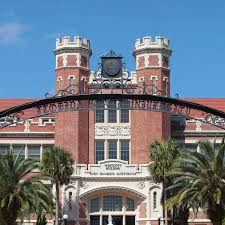Speaker
Description
We study the evolution of the doubly charmed state $T_{cc}^+$ in a hot hadron gas produced in the late stage of heavy-ion collisions. We use effective Lagrangians to calculate the thermally averaged cross sections of $T_{cc}^+$ production in reactions such as $ D^{(*)} D^{(*)} \rightarrow T_{cc}^+ \pi, T_{cc}^+ \rho $ and its absorption in the corresponding inverse processes. We then solve the rate equation to follow the time evolution of the $T_{cc}^+$ multiplicity, and determine how it is affected by the considered reactions during the expansion of the hadronic matter. We compare the evolution of the $T_{cc}^+$ abundance treated as a hadronic $S$-wave molecule and as a tetraquark state. Our results show that the tetraquark yield increases by a factor of about 2 at freeze-out, but it is still one order of magnitude smaller than the final yield of molecules formed from hadron coalescence. Also, the results indicate that $N_{T_{cc}}$ is more affected by interactions with hadronic medium than $ N_{X(3872)} $ in similar conditions. We also show that yields depend very weakly on the system size, represented by $\mathcal{N} = \left[ d N_{ch} / d \eta (\eta < 0.5)\right]^{1/3}$.

